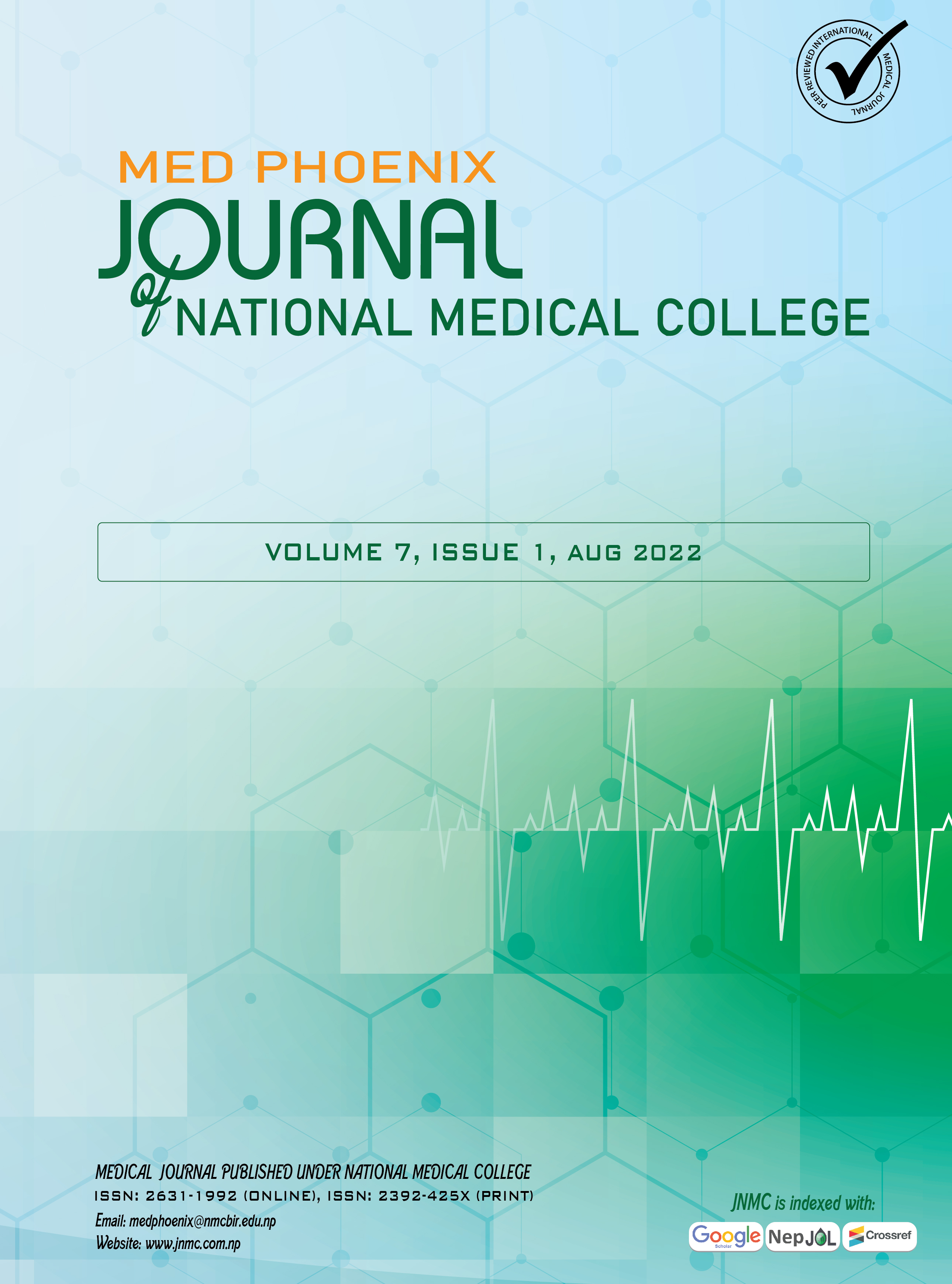Non-Thyroidal Illness Syndrome: A Pattern of Thyroid Dysfunction Seen in Intensive Care Unit Patients of a Tertiary Care Centre
DOI:
https://doi.org/10.3126/medphoenix.v7i1.47404Keywords:
APACHE II Score, Free Tri-iodothyronine, Non-Thyroidal illness, Thyroid Function TestAbstract
Introduction: The response to the endocrine mechanism including thyroid gland hormones to critical illness is a complex phenomenon.1 There is a marked and distinct changes in the levels of thyroid hormones in critical illness.2 The magnitude of the decrease in circulating tri-iodothyronine (fT3) levels (also known as non-thyroidal illness) during the first 24 hour after the onset of acute illness reflects the severity of illness and correlates with mortality. The study aims to evaluate the thyroid function test (TFT) of critically ill patients. The results of the study will be helpful in determining the thyroid picture of the critically ill patients in our setting and definitely help in assessing the outcome of the patient admitted in ICU or ward.
Materials and Methods: This is a hospital based cross sectional study. A total of 150 cases with the critical illness assessed as per Acute Physiology and Chronic Health Evaluation II (APACHE II) score were enrolled in the study from 12th December 2021 to 15th June, 2022. Informed written consent and ethical approval were taken.
Results: The majority of the cases (52%) were of geriatric age group with the mean age of 57 years. Majority of the study participants (42%) in APACHE II were from 20–24 across all participants, and both sexes. Fifty‑one percent of the patients had reduced fT3 levels. There was an increase in percentage of patients with decreased fT3 levels with increasing APACHE II score, compared to normal fT3 levels at similar APACHE II score and the distribution was found to be statistically significant (p = 0.0233). Of the 68 patients expired, 52 of them had low fT3 levels whereas only 16 cases expired were with the normal fT3 level, making it a strong predictor of severity and outcome.
Conclusion: Decrease in the levels of fT3, a condition of non-thyroidal illness, is a crucial prognostic indicator in critically ill patients which in coordination APACHE Score II can be helpful in clinical settings to predict the severity and outcome of such patients.
Downloads
Downloads
Published
How to Cite
Issue
Section
License
Copyright (c) 2022 Med Phoenix

This work is licensed under a Creative Commons Attribution 4.0 International License.
Copyright on any research article is transferred in full to MED PHOENIX upon publication. The copyright transfer includes the right to reproduce and distribute the article in any form of reproduction (printing, electronic media or any other form).
© MEDPHOENIX
![]()
Articles in the MED PHOENIX are Open Access articles published under the Creative Commons CC BY License (https://creativecommons.org/licenses/by/4.0/). This license permits use, distribution and reproduction in any medium, provided the original work is properly cited.




